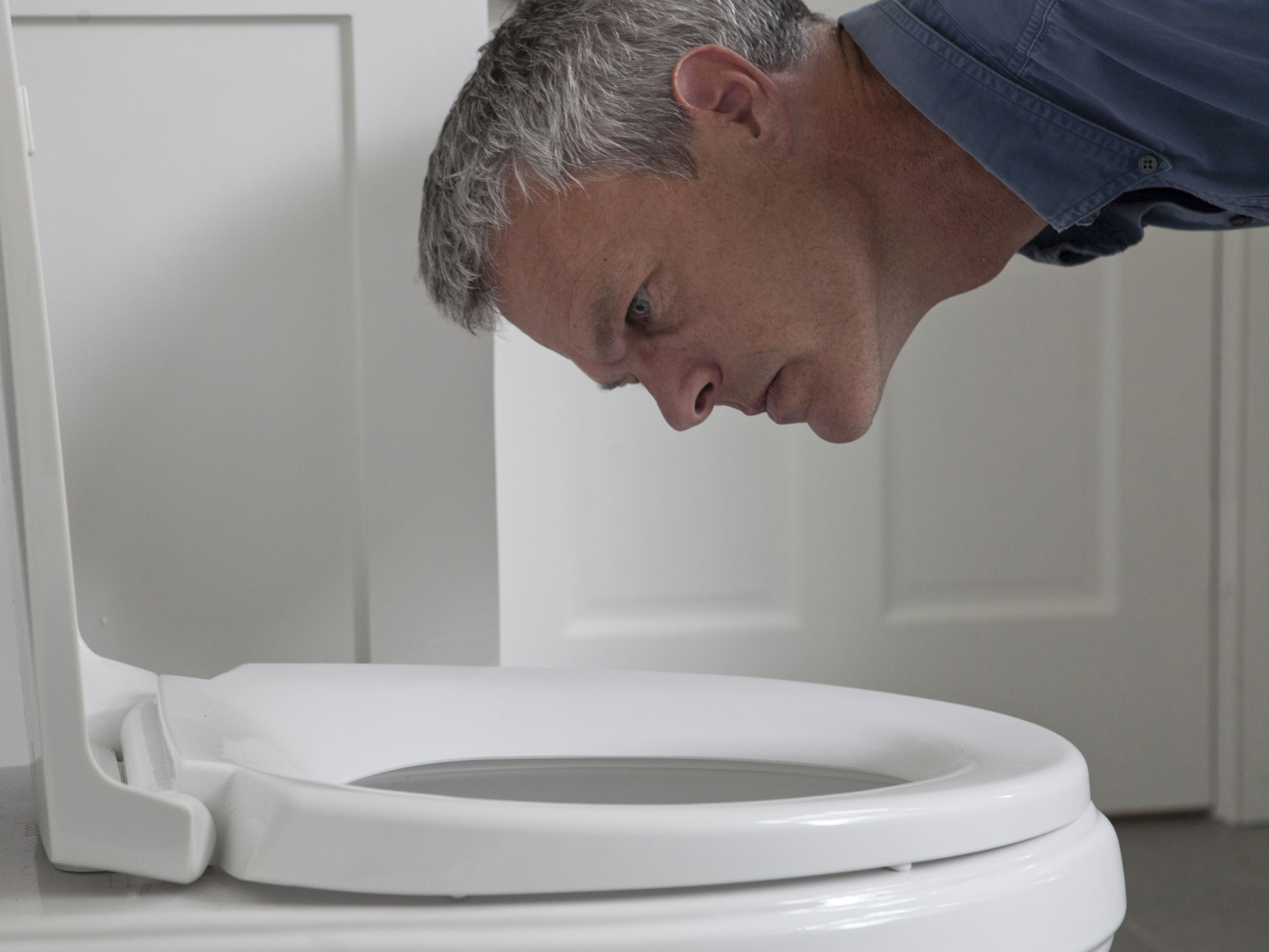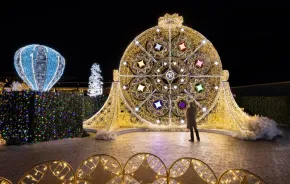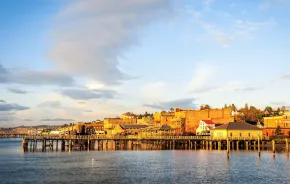
I am sitting opposite artist Stokley Towles on a sunny spring day in Seattle's Cal Anderson Park. Nearby, children are playing on the playground, people are playing tennis on the courts, and dogs are pulling their owners along the paths. The atmosphere is occassionally broken by the sound of a loud flushing noise from the public toilets situated in the center of the park. It's a sound that most people tune out, remembering instead the birdsong and children's laughter. But Towles has made an intensive study of it, and turned the experience into art.
We are here to discuss his latest performance art piece, a 50-minute one-man show titled Flushed: Into the World of Wastewater Treatment. It's an unusual topic for theater, but like dramatic theater, it deals with universal themes. “It touches all of us. We don't think about it until it doesn't work, but it applies to all of us,” says Towles.
Driven by his curiousity about how things work, Towles' brand of urban anthropology combines historical research with personal interviews and job-shadowing. Using King County as his primary subject, his body of work details the anatomy of modern society through its systems: garbage, police, libraries, trails, and now, wastewater.
Flushed is a work of narrative nonfiction brought from the page to the stage. Towles uses funny stories drawn from real life to engage the audience in a topic they might otherwise want to avoid. Stories about Ron, the treatment plant manager, spending sleepless nights thinking about his work, or stories about the strange things that find their way into the treatment plant help people see the human side of often-invisible urban systems. Over the course of about an hour, Towles weaves these stories —others include tales of a sewage swim team and "the day that lemons filled the sewage treatment plant" — into an explanation of what happens after we flush. He teaches the history of the toilet and wastewater and sewage systems along the way.
Pretty clean for toilet talk
Despite the um, dirty, subject matter, Towles' performances are pretty clean. “I have kids myself, and my friends bring their kids,” he says. In Flushed, there is one occurrence of the word “sh*t,” which is pretty restrained for a story about a process that starts and ends with the toilet.
However, Towles warns that the monologue format is not for everyone. In his experience, age 7 is the minimum age for being able to sit quietly and stay with the narrative for the duration.
Even with older kids, he says “I know that I will lose them at certain points, and then bring them back at others.” If you have to bring younger kids, or you're not sure how your kids will respond, he recommends sitting at the back where it's easy to make a quick escape if anyone gets restless.
“Part of the goal of the work is to figure out how to get people engaged,” Towles says. The combination of funny stories and in-depth information seems to work. “People get interested. They see a performance and they come back,” he says.
Towles has performed in a variety of locations and circumstances, and has found a surprisingly broad audience. One performance at a public library, was attended by an entire fifth-grade birthday party. Performances at middle schools and to groups of students have also been met with great interest.
Towles says his own interest in urban infrastructure began when he was working on a project at the library. In talking with the librarians, “I realized their view of us was different from what I expected,” he says. That discovery led to exploring other groups of people who support and maintain infrastructure, like those in wastewater and the police. “People see the world through the lens of their work,” Towles says. His own work aims to show audiences what their community looks like through those different lenses.
Interview completed, I gather my things and walk back to my car. Behind me, a toilet flushes noisily in the restroom in the park.
If you go ...
What: Flushed is a 50-minute performance without intermission, appropriate for ages 7 and up. There will be eight performances.
Where: New City Theater, 1404 18th Ave., Seattle, WA 98122
Buy: Tickets can be purchased through Brown Paper Tickets
Dates and prices: $10 performances: Saturday, April 25, 7:30 pm; Sunday, April 26, noon
$15 performances: Friday, May 1, 7:30 p.m.; Saturday, May 2, 7:30 p.m.; Sunday, May 3, noon; Friday, May 8, 7:30 p.m.; Saturday, May 9, 7:30 p.m.; Sunday, May 10, noon.
Parking Parking is on the street. Consider public transit.
Note: A related work, Stormwater, can be viewed online.











